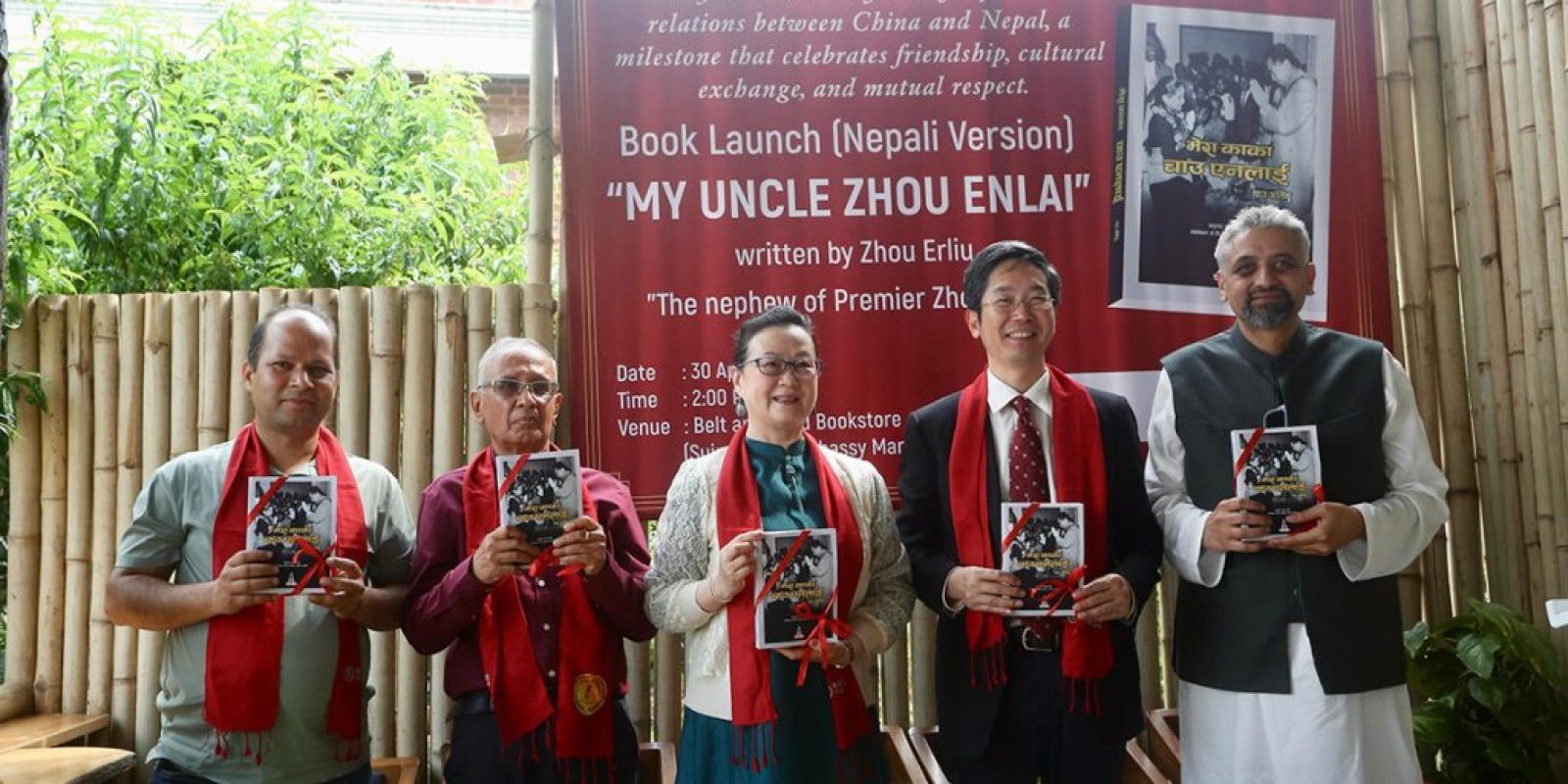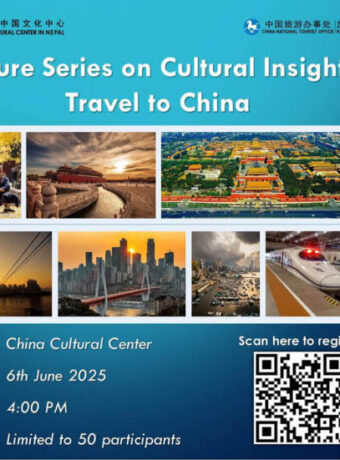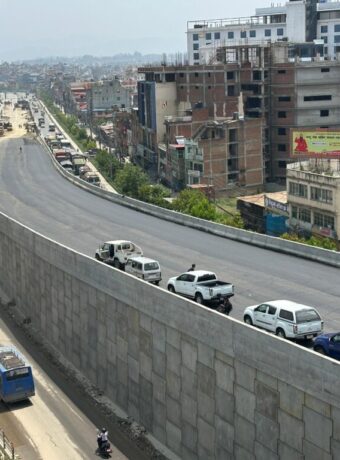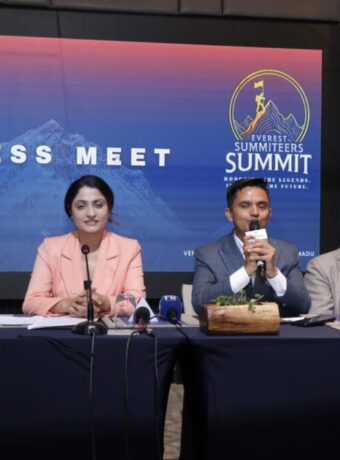“My Uncle Zhou Enlai” Launched in Nepali edition : A Tribute to History, Friendship, and Shared Futures

Kathmandu April 30 – To mark the 70th anniversary of diplomatic relations between Nepal and China, the Nepali edition of My Uncle Zhou Enlai—originally authored by Zhou Erliu—was officially launched today at the Belt and Road Bookstore in Kathmandu. The event gathered diplomats, historians, translators, and readers united by their admiration for Premier Zhou Enlai and the enduring China–Nepal friendship.
The launch featured five speakers:
•Zhou Rong, grandniece of Premier Zhou Enlai
•Wang Xin, Deputy Chief of Mission, Chinese Embassy in Nepal
•Dr. Upendra Gautam, General Secretary, China Study Center
•Ajay Sharma, translator of the Nepali edition
•Kiran Gautam, editor and publisher of the book
In his keynote address, Wang Xin praised Premier Zhou’s selfless legacy and his profound role in shaping China–Nepal ties—from his historic visits in 1957 and 1960 to his pivotal role in resolving the border issue through joint stewardship of Mount Qomolangma/Sagamatha. “This book is more than a biography,” he said. “It is a spiritual bridge that crosses the Himalayas.”
Zhou Rong expressed gratitude for the heartfelt reception in Nepal and shared reflections on her family’s connection to the country.
Premier Zhou Enlai once said that my father was following in his footsteps, and that is the reason I came to Nepal this time, following my father’s footsteps.
Dr. Upendra Gautam contextualized Zhou’s diplomatic achievements in the broader framework of Himalayan geopolitics, while Ajay Sharma spoke of the emotional and intellectual depth involved in translating the work.
Kiran Gautam, editor and publisher of the Nepali edition, delivered a moving address. He shared how a single WeChat post, commemorating Zhou’s death anniversary two years ago, unexpectedly connected him with Miss Yang of Yilin Press and sparked the collaboration that led to this publication.
He also recounted a rarely heard story passed down by his father:
“In 1957, during his visit to Nepal, Premier Zhou was allowed to enter the sacred Pashupatinath Temple—despite strict rules forbidding foreigners. It’s said he donated 500 Indian Rupees there. My father witnessed this as a boy, and veteran journalists later confirmed the story. At that time, Nepal’s own currency had not fully replaced Indian notes. It is said that the symbolic moment nudged King Mahendra to accelerate Nepal’s monetary independence.”
This anecdote reminded the audience how even quiet gestures, such as a temple donation, can influence national identity.
Held at the Belt and Road Bookstore, a literary space built on the values of dialogue and cultural connection, the event served as both a tribute to Zhou Enlai’s visionary leadership and a reaffirmation of China–Nepal people-to-people bonds.
As Premier Zhou once said, “Only by understanding history can we write the future.” And today, history came alive in Kathmandu—not just through words, but through hearts, memories, and shared aspirations.
The event was hosted by the current publication and Yilin Press from China.







